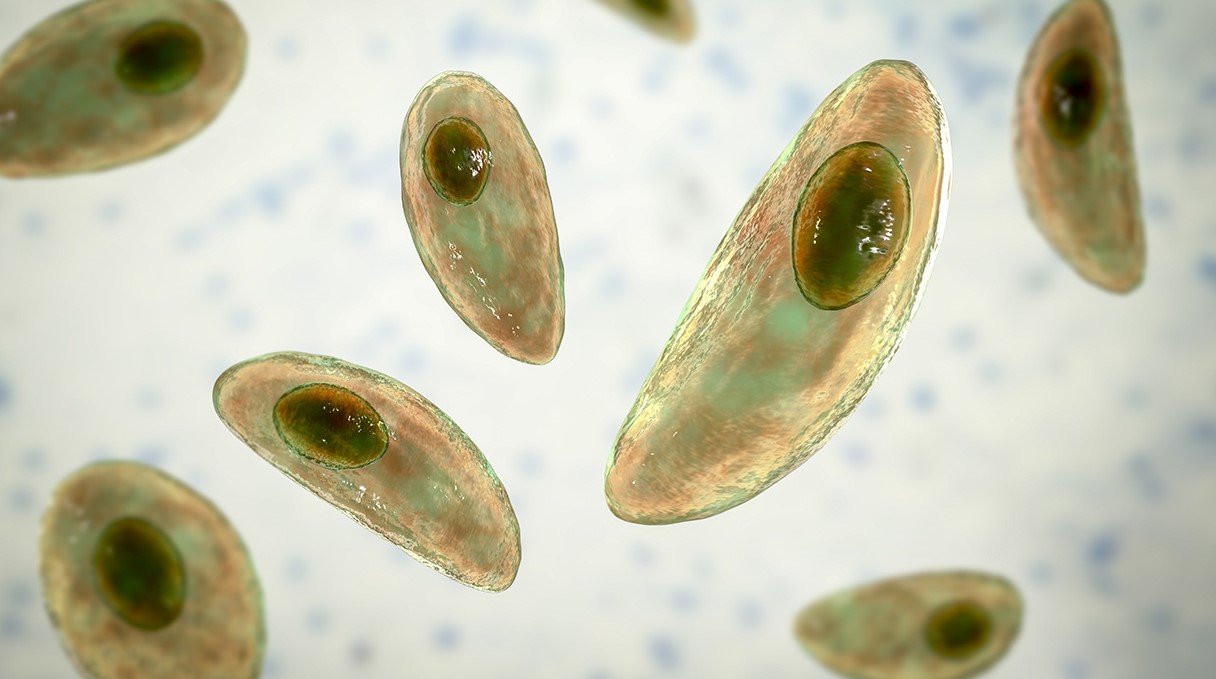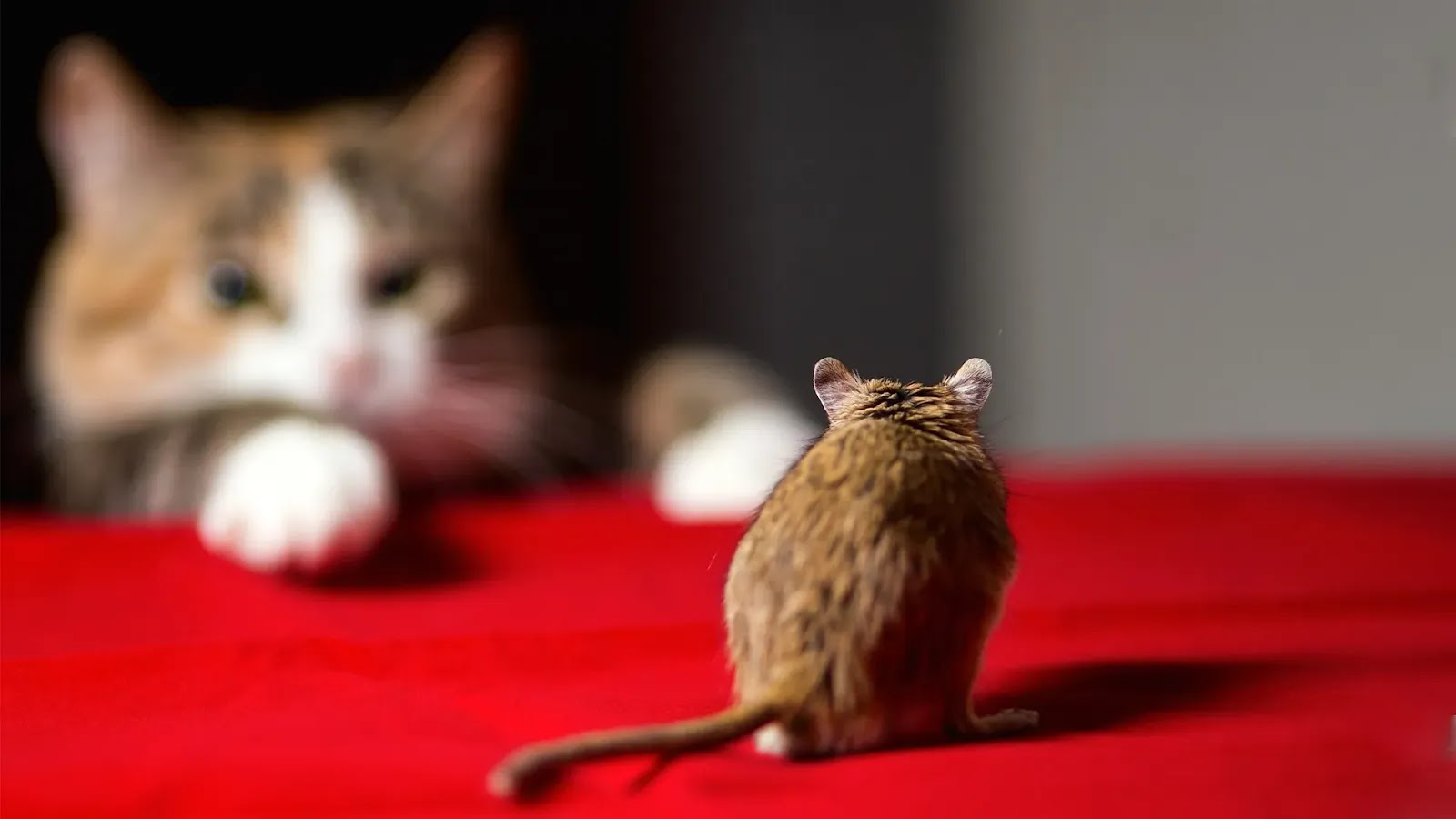Who's Behind the Wheel?
Have you ever been in a situation to answer somebody's question with 'Yes and No'? Well, it is definitely one of those answers they are teaching politicians to answer every time they need to use some evasive maneuvers in order to avoid discussions they don't want to get into. But in this case, the answer to the question from the title, or expanded a little with, "Are you really behind the wheel of your body?" is really 'Yes and No'. And nothing could be closer to the truth. The keyword is, of course, parasitology, a very complex scientific research that is trying to understand properly all the macro and microorganisms who can't live without other living beings and usually do that without their consent and rather use them to live their entire or partial life, which in most cases leads to the host's malfunction, to use a raw mechanical word. They only leave hosts in case of their death or if the host's environment is exploited to the level of uselessness for parasitic survival or simply to follow the natural circle of life, i.e., to lay eggs outside the host environment.
...about a nice plot for a novel. And that is exactly what Tom Knox did with his thriller called "The Deceit" and amazingly wrapped plot that connects the origins of all religions, ancient Egypt, domesticated cats, Toxoplasma gondii, and everything that might come out of this twist glued together. True or partially true or not at all, this book inspired me to learn something that I didn't know before and, of course, pushed me for a little web research that ended with this blog post. This is actually a second time that Tom Knox, a.k.a. Sean Thomas, forced me to do some more reading about the background of his novel—the first time it was after his "Genesis Secret" in post Supermarket Religion and needless to say, I recommend both books and am looking forward to more of his work. I am already hinted at "The Marks of Cain", which apparently offers similar travel from the history of man. Stay tuned.
T. gondii refs:
http://jeb.biologists.org/content/216/1/1.short
https://web.natur.cuni.cz/flegr/pdf/induction.pdf
http://rspb.royalsocietypublishing.org/content/273/1602/2749
http://news.nationalgeographic.com/news/2007/04/070403-cats-rats.html
http://www.ncbi.nlm.nih.gov/pmc/articles/PMC2526142/
https://en.wikipedia.org/wiki/16PF_Questionnaire
* Image refs:
https://www.science.org/content/article/.../toxoplasmosis-parasite-lab
http://www.ancient-origins.net/history/veneration-and-worship-felines-ancient-egypt-003030
Toxoplasma gondii—a single-celled protozoan*
This blog is not a medical source or place for studying biological entities of any kind, and I am surely not really qualified to provide any advanced knowledge about parasites and how to avoid contamination or heal after. But I am always interested in scientific edges and research that provide unusual results, to say the least, and this post is more about whether or not some parasitic species, like Toxoplasma gondii, are able to affect the human mind in a way that the personality of the host could be changed to the level of influencing entire social life. However, some basic information can't hurt in order to better understand how biology works. For example, if we are talking about macroparasites or entire sexually developed tiny organisms with complex, 'teen' and 'adult' lives with stages of infecting hosts, feeding, laying eggs, and contaminating surroundings, then we are talking more about different kinds of worms (shaped as round, tape, hook, whip, etc.) invading hosts through raw meat, contaminated water, or unclean food. This is the most common way of intrusion, but parasitic eggs can be spread everywhere and through the simple touch of infected handles, phones, appliances,... anything at all. When inside, they eat your digested food or even your blood vessels and cells. And they spread a wide variety of diseases, even though they can stay dormant for months and years. They are truly microscopic monsters, very similar to those 'Alien' types in horror movies.
However, the bigger they are, the better they are studied and understood and today, contrary to dark ages when parasitic infection was able to spread severely among huge numbers of people, treatments are very successful if detected as early as possible. The smaller they get, like the single-cell deadly microorganism known as Plasmodium (Malaria parasite), the tougher the fight is for knowledge and treatments for diseases they are causing. And for some parasites, disease, in the form we define it, is just the final stage of their complex life. As it seems, they are also very much able to force their hosts to do their bidding as well. In the most intelligent and cruel way. Let's see what Toxoplasma gondii is capable of. Sometimes it is hard to believe all the scientific facts. And believe me, 'believe' is the right word for this little alien and hostile invader of hosts' minds. Humans included.
Cats and Mice: It's Complicated*
All parasite species tend to complete their lives from the stage of being born till the end of their lives. Toxoplasma gondii's ultimate treat is the cat. This is what it is designed for, and this is where it wants to finally multiply and end its life. But it is hard to find a cat when you need it, right? So there are lots of potential intermediate hosts on the way. Before they ultimately end in the intestine of a cat-shaped animal, they find the drive in the encysts of the brain and other tissues of a warm-blooded species, including humans. If they move in rats or some other rodent animal, the parasite recognizes its intermediary and alters the host's behavior for one purpose only—to be an easy victim for cats. More precisely, they induce high levels of dopamine, a neurotransmitter known to alter novelty-seeking and enhance the host's neuroticism. In other words, the mouse becomes a curious adventurer of its surroundings and loses fear of cats and everybody else. Uninfected rodents have built in protection from their native predators and always try to avoid areas marked with cat urine or odor, but after the infection, parasite brainwashes rodents to even go into craving cat urine and directly into trap. Toxoplasma gondii can only sexually reproduce in the feline gut, and there you have the answer to why cats so much love mice and rats. Even more surprisingly, all the symptoms in infected lab rats stay after parasites die in the rodent, suggesting permanent changes in the host's neural system.
But what happens if T.gondii finds the way and invades the human body? And according to research, it is apparently capable of infecting us on large scales, and up to one-third of people around the world are estimated to be potential hosts. And we are sort of dead-end for their travel. If we exclude sporadic cases of tigers and lions attacking and eating humans, cats actually can't thrive on us. Well, yes, domestic cats don't eat human beings, but still, there are other ways of transferring parasites from humans to cats, and it seems that Toxoplasma gondii, like in rodents, is also trying to use its unprecedented ability to alter host behavior, all in favor of parasitic life fulfillment. For the simplicity of this blog post, we can make a difference in parasitic life inside an intermediate human host compared to rats and mice. In its acute form, I would say after the parasite realizes there is no way out, or due to some other reason in the mixture of parasitic and host's life, the human host can go into severe mental disorders such as schizophrenia, suicidal behavior, or the performance of slow mental activity and thinking. Within a large amount of time, in the parasite's latent form, the host is going through light personality changes that are very difficult to recognize as a disease. The latent toxoplasmosis might even be immune to treatments and antibiotics, and some hosts, like our distant rodent relatives, could even change their response to cat odor as well.
The Veneration and Worship of Felines in Ancient Egypt*
Perhaps a decade ago, one comprehensive study was finished at Charles University in Prague, in the Czech Republic, by Jaroslav Flegr, and numerous researches ended with extremely interesting findings published in the paper "Induction of changes in human behaviour by the parasitic protozoan Toxoplasma gondii" (referenced below). Over the years, they tested many cases of infected men and women against 'Cattell's personality factors' (a sort of scientific personality test designed to reveal aspects of an individual's character) and compared them to those performed by non-infected people. Both infected men and women had significantly higher apprehension and level of social fearness, with significant differences in results between the two groups. Infected men showed lower superego strength (rule consciousness), higher vigilance, were more likely to disregard rules, and were more expedient, suspicious, jealous, and dogmatic. Women, on the other end, showed higher warmth and higher superego strength, suggesting that they were more warm-hearted, outgoing, conscientious, persistent, and moralistic. And all those human properties are not considered a disease of any sort. Remember that the latent stage of toxoplasmosis can be the case of one of three people you can meet on the street, including yourself and me. All those people would behave differently if they were not under the influences of small microorganisms only visible under the eye of an electronic microscope!
Now, it is very much close to all sort of logic that human culture, isolated or widespread, can alter individual personality. In simple words, if you are a member of a herd of sheep, the most likely you would be a white sheep and behave like all the other members of society, well... herd. However, the same logic goes for humans and the other way around—that cumulative personality might shape cultural dimensions through the collective behavior of individuals. And if you got yourself a society of humans all or most of them infected with T.gondii (which is not far from the truth, especially in the early history of mankind ever since the ancient Egypt and domestication of cats), their cultural self would no doubt be shaped far from the case if all they were uninfected and healthy. And if you glimpse again the personality of diverted subjects above, with increased apprehension and decreased superego with men and highly sensitive women, if you ask me, the very own free will could be in question along with increased susceptibility to superstition and religiosity.
Well, I am not saying it, and surely there's lots of more research to be done, but if one small society in the history of humanity should thank a small microorganism for, i.e., the rise of religion and everything that implies, you have to wonder...
...about a nice plot for a novel. And that is exactly what Tom Knox did with his thriller called "The Deceit" and amazingly wrapped plot that connects the origins of all religions, ancient Egypt, domesticated cats, Toxoplasma gondii, and everything that might come out of this twist glued together. True or partially true or not at all, this book inspired me to learn something that I didn't know before and, of course, pushed me for a little web research that ended with this blog post. This is actually a second time that Tom Knox, a.k.a. Sean Thomas, forced me to do some more reading about the background of his novel—the first time it was after his "Genesis Secret" in post Supermarket Religion and needless to say, I recommend both books and am looking forward to more of his work. I am already hinted at "The Marks of Cain", which apparently offers similar travel from the history of man. Stay tuned.
T. gondii refs:
http://jeb.biologists.org/content/216/1/1.short
https://web.natur.cuni.cz/flegr/pdf/induction.pdf
http://rspb.royalsocietypublishing.org/content/273/1602/2749
http://news.nationalgeographic.com/news/2007/04/070403-cats-rats.html
http://www.ncbi.nlm.nih.gov/pmc/articles/PMC2526142/
https://en.wikipedia.org/wiki/16PF_Questionnaire
* Image refs:
https://www.science.org/content/article/.../toxoplasmosis-parasite-lab
http://www.ancient-origins.net/history/veneration-and-worship-felines-ancient-egypt-003030
https://www.woodstreambrands.ca/articles/top-cat-breeds-for-catching-mice-canada
General refs:
http://www.patheos.com/blogs/scienceonreligion/2012/06/281/
https://en.wikipedia.org/wiki/List_of_parasites_of_humans
http://www.mindbodygreen.com/0-11321/10-signs-you-may-have-a-parasite.html
http://www.techtimes.com/articles/16125/20140922/10-common-parasites
General refs:
http://www.patheos.com/blogs/scienceonreligion/2012/06/281/
https://en.wikipedia.org/wiki/List_of_parasites_of_humans
http://www.mindbodygreen.com/0-11321/10-signs-you-may-have-a-parasite.html
http://www.techtimes.com/articles/16125/20140922/10-common-parasites














